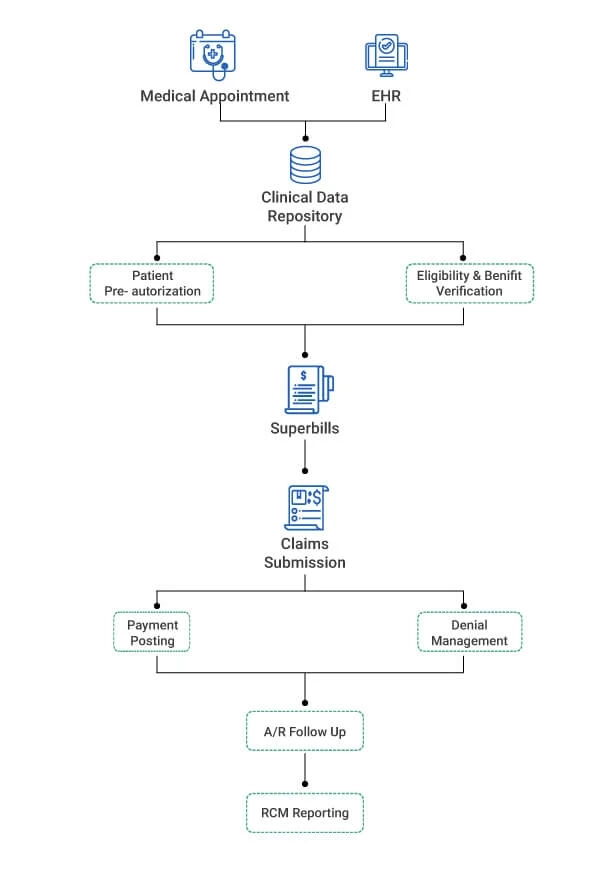A claim denial is the failure of an insurance company or provider to accept a request by a person or their payer to pay for health care services acquired from a healthcare professional. Healthcare organizations are hired to prioritize and not deal with insurance providers and figure out why they have been denied reimbursement. However, although receiving a denial is a difficulty in itself, healthcare companies have additional challenges when implementing an adequate Claims denial management system. Tracking denial data, employing manual methods, getting unnecessary denials, and appealing claims through a resource-intensive process are typical difficulties. By Avoiding billing denials, it is crucial to identify where the highest standard deviation exists. There are two kinds of rejections: Hard denials and Soft denials. Complex denials are precisely what their name implies: irreversible, and they frequently result in income lost or written off. On the other hand, soft rejections are only temporary and can be reversed if the provider corrects the claim or provides new information. There are a few ways of dealing with claim denials: In-depth analysis : Determining the underlying reason for claim denials is critical for denial management. This form of Resource aids in understanding the typical factors that result in rapid claim denials and the existing flawed system may be improved for better outcomes. Additionally, significant performance indicators such as the primary rejection rate, the rate of appeals, and the draw ratio are provided to improve healthcare denial management. Denial management: Implementing a Denial Management Solution in healthcare is one of the essential factors in ensuring a stable financial position and potent Health care Remedies. Such a solution aids in categorizing rejection reasons depending on what causes and sources exist and developing efficient denial management in medical billing. Automated Appeal Management: Denials for medical and surgical patients are simple to appeal, but adequately handling appeals for hospitalized patients for a prolonged significant length of time is a complicated process. Automating the continuing manual appeals management process can assist providers in reducing the stress, time, and money required to get reimbursed for legitimate medical claims. Before submitting electronic claims to payers, the in-house medical clearinghouse solution cleanses the mistakes in the Settlements documents. It provides accurate data for any missing data to authenticate the claims against payer-specific regulations. The most compelling objective of a medical clearing solution is handling all aspects of claims denial, from acceptance through reconsideration. It helps with resolving errors and mistakes before submitting claims. A thorough claims processing report provides a complete list of problems and reasons for rejections that must be rectified before submitting a claim. Rules Management: A well-defined advanced payer rule engine aids in the management of settlement-related rules, the identification of denial operations, as well as the acknowledgment of new rules. A complex payment regulation solution is used to define claims qualification for each payer in the system. It can track these rules anonymously for each user base and automatically transmit details of current rules throughout the whole network. CONCLUSION: Correction of inpatient medical coding mistakes accounts for over 80% of denied claims. A variety of claim-related services may assist avoid billing denials by doing the comprehensive screening, collecting accurate patient data, and relying on top Denial management in medical billing software. Thus, paying more attention to filing better complaints addresses many significant claims denial management issues. Identifying possible denial-causing mistakes before payers notice them should result in faster and more accurate claim reimbursement.Medical Clearinghouse Solutions:
Top 5 Best Practices to deal with Denial Management in Healthcare.


